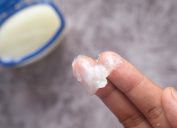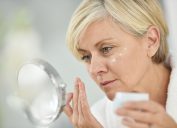6 Fixes for Dry Skin If You're Over 60, According to Dermatologists and Beauty Experts
The pros say there's a trio of ingredients you need in your routine.
Dry skin is a bummer. And we have bad news: it gets worse as you age. Over time, the body produces fewer natural oils. That, plus the cumulative effects of sun damage, can lead to skin that's itchy, scaley, and patchy. However, you don't have to sit back and suffer. Just because your skin might be scratchier in your seventh decade doesn't mean there aren't fixes that can help you find relief. Here, we chatted with dermatologists and beauty experts to learn the key ways to mitigate dry skin over 60. From lifestyle changes to skincare upgrades, these tips will make you feel brand new.
READ THIS NEXT: 5 Reasons You Should Add Petroleum Jelly to Your Skincare Routine After 50.
1
Minimize sun exposure.

If you need another reason to slather on sunscreen, you should know that skipping it could negatively impact how your skin looks and feels. "Sun damage makes your skin drier," says Brenda Dintiman, MD, board-certified dermatologist at DermUtopia. "Use sunscreen to prevent further dryness."
And remember: not all SPFs are created equally. To get the desired plump, bouncy effect, you'll want to select one for dry skin. Choose a cream formula with ingredients like aloe, hyaluronic acid, glycerin, and ceramides. That, plus an SPF 30 or higher, will moisturize the skin while protecting it from future damage.
2
Use a humidifier.
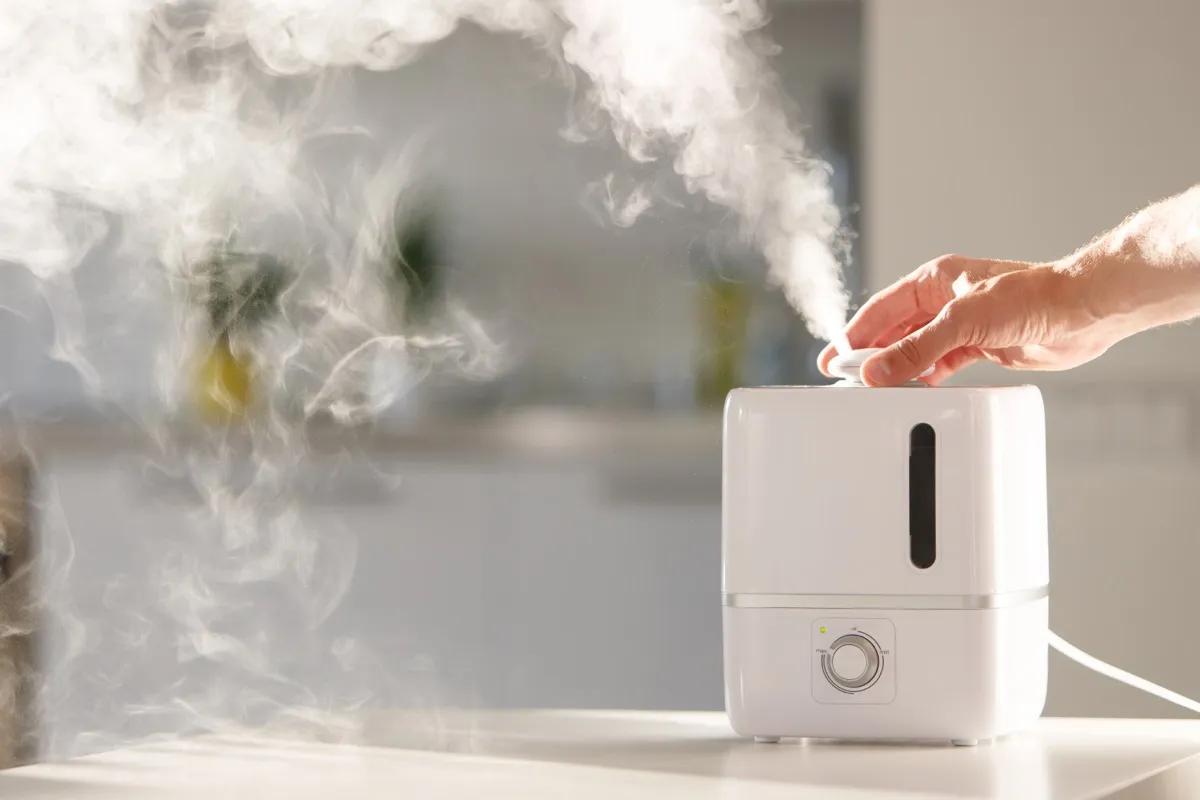
One of the top fixes for dry skin hardly has to do with the skin at all—it has to do with the air. "Use a humidifier to add moisture to the living areas around your home," says Marie Baker, FNP-C, president and medical director of DermaCrush Medical. The device is even more critical in the summer and winter when heating and air conditioning remove moisture from the indoor air.
So, how does a humidifier help? "When your skin's protective barrier is damaged (read: dry), it creates small cracks in the skin, causing moisture to escape," Marina Peredo, MD, a board-certified dermatologist in New York, told Real Simple. "Running a humidifier pulls moisture back into the air to improve dry, itchy skin and help it retain that hydration."
If you don't have a humidifier, boil a pot of water on the stove (you'll have to watch it for safety reasons).
READ THIS NEXT: Goldie Hawn Swears by This Grocery Store Product for Perfect Skin at 76.
3
Skip the hot showers.
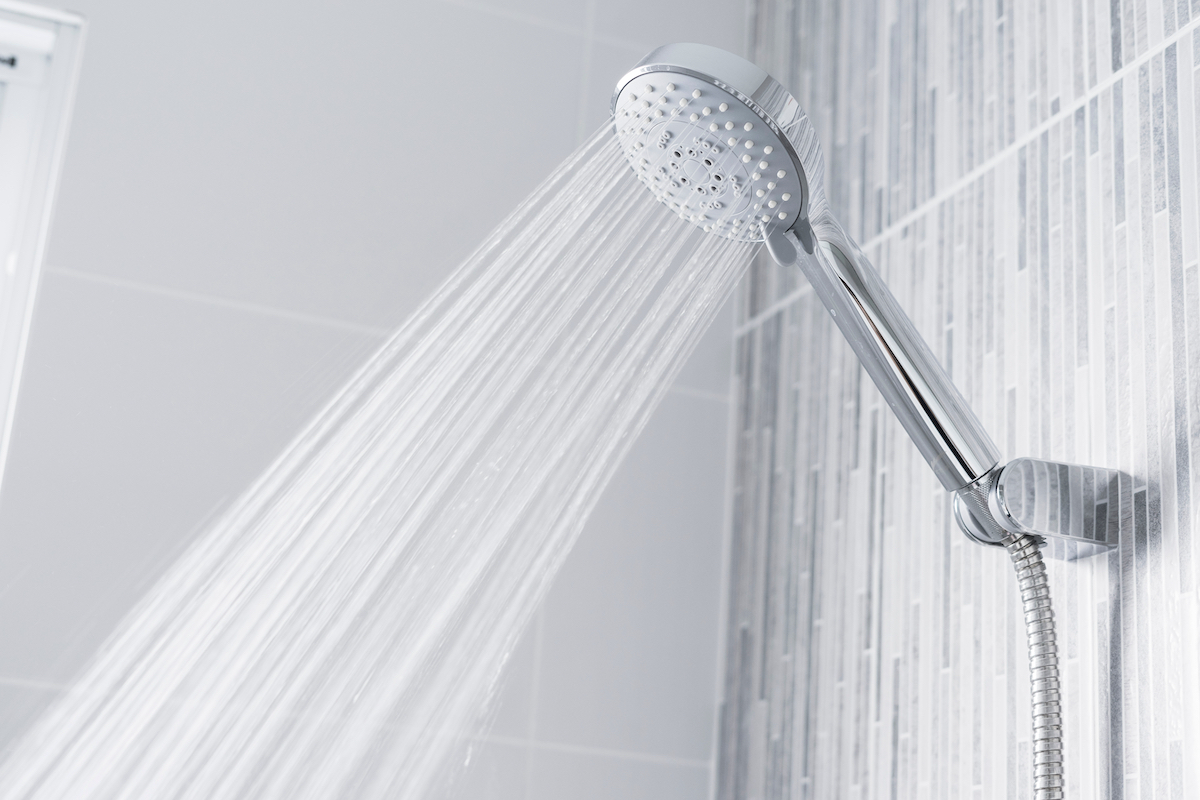
If you have a preference for steamy hot showers, you might be exacerbating your dry skin. "These cause transepidermal water loss, which strips moisture from the already delicate skin," says Baker. Fortunately, there's an easy fix: turn down the heat and shorten your shower routine, especially when dealing with a dry-skin flare-up.
4
Opt for a lipid-rich skincare routine.
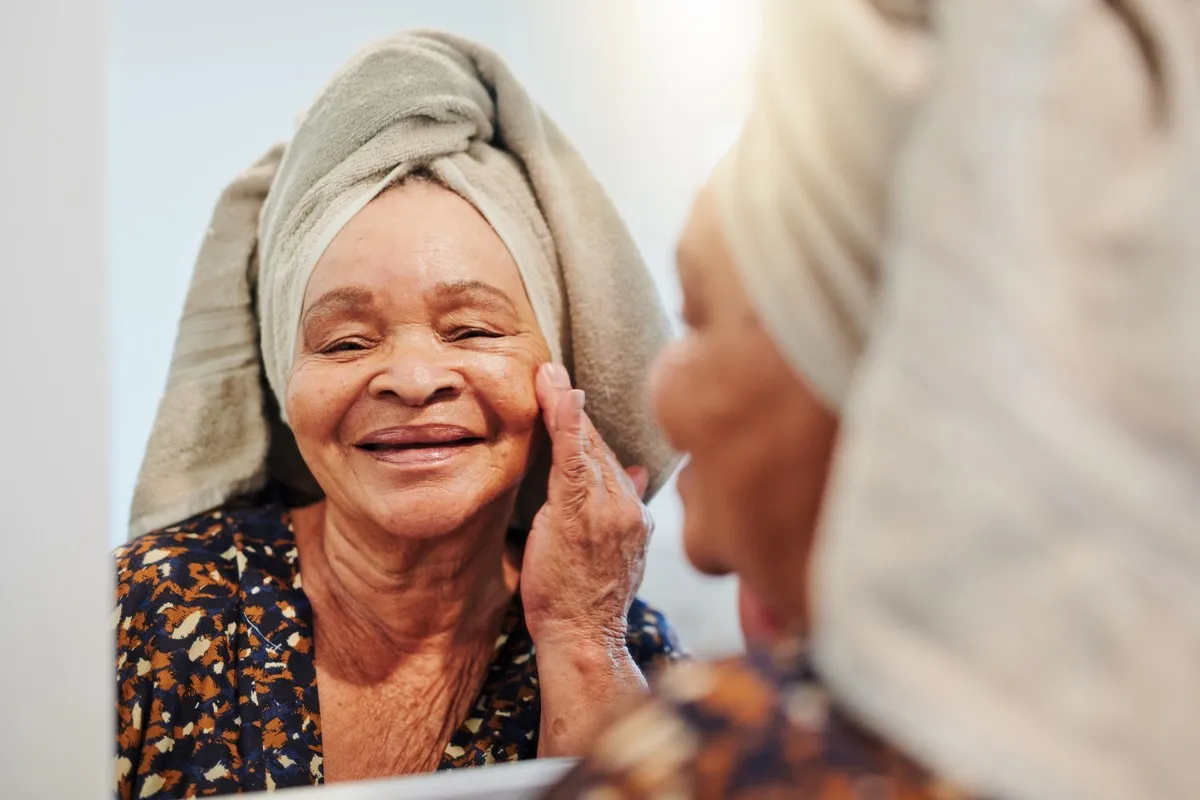
A targeted skincare routine is the final component for fixing dry skin over age 60. "As we age, our skin dramatically decreases its natural production of collagen, elastin, and sebum," explains Georgia Smith, cosmetic chemist and founder of Skin Sister.
Her best tip is to mitigate that by using lipid-rich skincare products. (The three classes of lipids include ceramides, fatty acids, and cholesterol; they're each found in oils). "This will help replace the lost sebum that your skin is no longer producing like it used to; lipids will nourish your skin and reduce that dry and tight feeling."
Look for a moisturizer with ceramides, fatty acids, or cholesterol (or a combination!) and apply it diligently morning and night.
For more beauty news sent directly to your inbox, sign up for our daily newsletter.
5
Add hyaluronic acid to your routine.
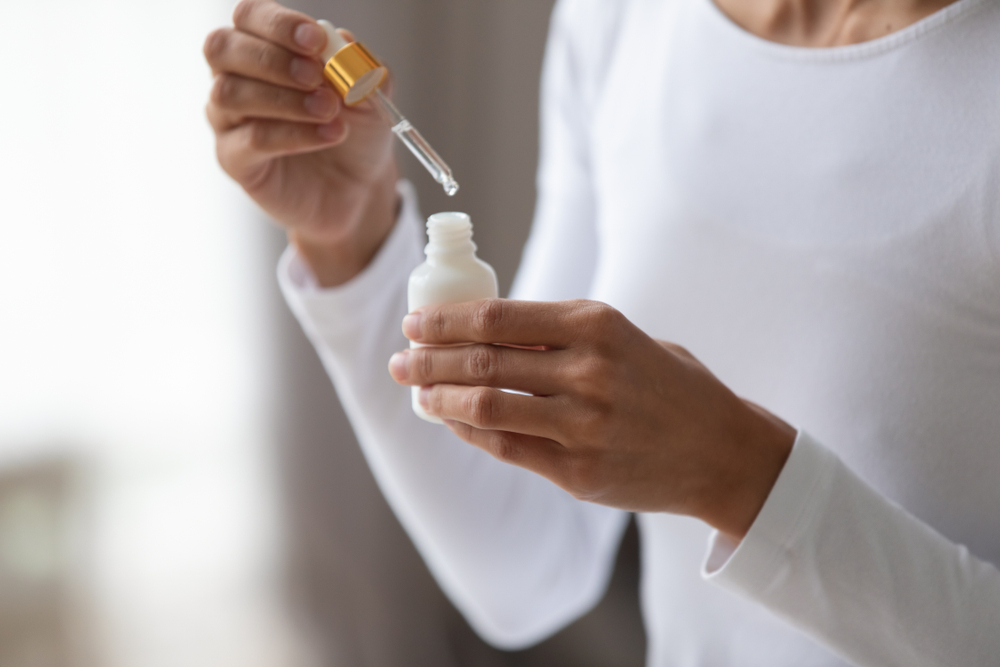
This is the hero ingredient for hydrated skin. "Hyaluronic acid is an amazing ingredient that helps the skin to maintain moisture and prevent moisture loss," says Baker. "Products like SkinMedica's HA5 Rejuvenating Hydrator incorporate hyaluronic acid, among other moisture-retaining ingredients, to produce more supple and youthful skin with immediate and long-term benefits." Swipe it onto damp skin before your moisturizer and SPF for an instant lift.
6
Finish your routine with an occlusive.
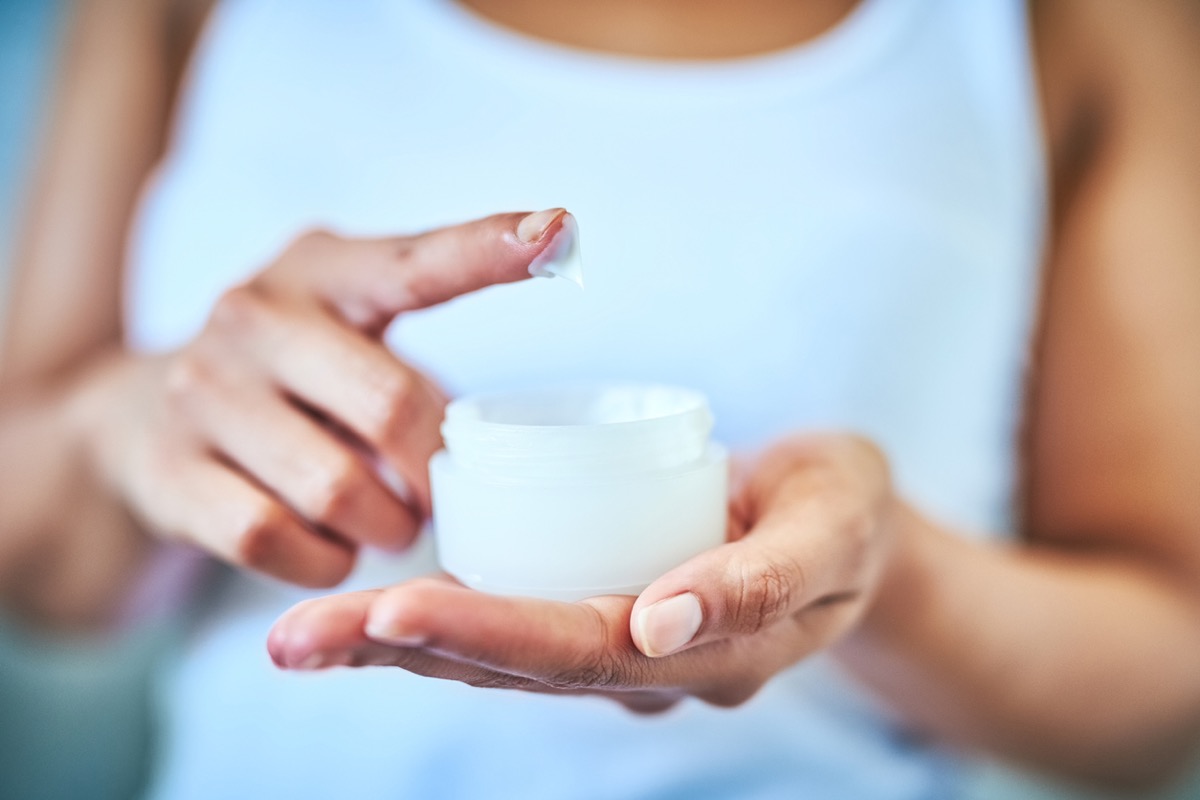
Your final skincare step should be a petroleum jelly product like Vaseline or Aquaphor. "Occlusives are great as they are thickened formulations designed with oil and water—exactly what our skin is not naturally producing [at 60] as it used to," says Smith.
They're especially useful to seal in your skincare at night. "When applied to the skin, petroleum jelly creates a barrier that physically prevents water from evaporating from the skin into the environment," Arash Akhavan, MD, FAAD, owner of the Dermatology and Laser Group in New York City, previously told Best Life. "As a result, the water content of skin increases, yielding skin that is more hydrated." Put it on after your moisturizer to reap the benefits.

